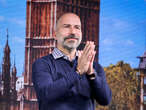The traditional job interview—a face-to-face meeting with a hiring manager and perhaps a few others from the organization who pepper you with mostly improvised questions about your past—is slowly becoming a relic of the past. These conventional interviews, often based on subjective assessments of personality and presentation, are gradually giving way to a new model that prioritizes skills over degrees and concrete accomplishments over charisma.
Perhaps no movement better captures this shift than the Tear the Paper Ceiling movement, which challenges the long-standing practice of requiring specific degrees for certain positions. Organizations like Google, IBM, and Walmart have all signed on, along with many other large businesses.
This sea change isn’t just happening in the private sector, it’s reaching the highest levels of government. Bills have overwhelmingly passed the famously contentious U.S. House (though they have yet to reach the Senate) to transition civil service from degree requirements to skills- and competency-based hiring, signaling a broader societal shift in how we value and assess talent.
As hiring practices evolve, so too has the job interview process. Enter the structured interview. HR departments increasingly recognize that these more formalized interactions are far more predictive of performance and retention than their traditional counterparts.
While not all structured job interviews will look the same, they typically share one or more of these characteristics:
- The same questions for all interviewees for a given position
- A focus on how the interviewee has successfully applied skills to achieve results in real-world situations
- A panel of interviewers, rather than a one-on-one setup
- Evaluation of answers according to standard criteria by the panel
This new job interview approach places a premium on skills and concrete accomplishments. Candidates may also be asked to complete assessments that evaluate technical proficiency or gauge personality traits and innate characteristics such as resilience, problem-solving, communication ability, teamwork aptitude, and integrity.
So, how can you prepare for this brave new world of job interviews? Here are some strategies to help you shine:
Decode the job description
Start by dissecting the job description. Identify both explicitly stated and implied required skills. Job descriptions are your road map. They’re not just a wish list. They’re a blueprint for your interview preparation.
Sharpen your technical edge
Be prepared for skills assessments. If you’re in accounting, you might be presented with a P&L statement and asked to perform analyses on the spot. IT professionals could face coding challenges or network troubleshooting scenarios. Be prepared to show your technical skills. They could be put to the test in real-time during the job interview.
Craft your skills stories
Think about your soft skills: planning and organizing, interpersonal skills, teamwork, problem-solving, and others that are relevant to the job. Develop a repertoire of compelling examples that illustrate how you’ve applied these skills in specific situations to overcome obstacles or achieve goals. These aren’t just anecdotes. They’re evidence of your capabilities in action during the job interview.
Align with company values
Research and understand the company’s core values. Interviewers will be keen to evaluate how well your personal values align with their organizational ethos. Prepare concise, concrete examples from your experience to demonstrate how you embody these values in your career.
Spotlight your impact
Being part of a successful team is not enough in a skills-based interview. Today’s interviewers want to know your specific contributions. Articulate what your team accomplished and also highlight your individual role in that success. Interviewers want to know the “how” behind the “what.”
When discussing your accomplishments, focus on:
- Your specific contributions
- How you made those contributions
- The measurable results of your actions
As we move into a skills-based hiring world, job seekers must shift their focus from credentials to competencies. Your résumé might get you in the door, but you can demonstrate tangible skills and impacts that will land you the job. Take the time before interviews to find concrete examples that showcase your capabilities.
A skills-based interview is more than just a conversation. It’s a demonstration of your professional tool kit. By understanding these changes and preparing accordingly, you’ll be ready to tackle whatever challenges these new interview formats throw at you. Roll up your sleeves, gather your success stories, and get ready to show the world what you’re truly capable of accomplishing.








No comments